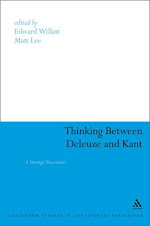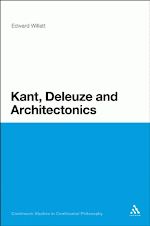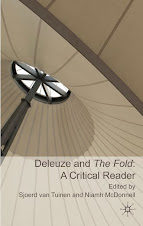New Book: Dorthea Olkowski, 'The Universal'
Published by Edinburgh University Press, January 2007
Book Description:
The Universal proposes a radical new philosophical system that moves from ontology to ethics. Drawing on the work of De Beauvoir, Sartre, and Le Doeuff, among others, and addressing a range of topics from the Asian sex trade to late capitalism, quantum gravity, and Merleau- Ponty's views on cinema, Dorthea Olkowski stretches the mathematical, poltical, epistemological, and aesthetic limits of continental philosophy and introduces a new perspective on political structures.
Straddling a discourse between formalism and conventionalism, Olkowski develops the concept of an ontological unconscious that arise from our "sensible" relation to the world - the information we absorb and emit that affects our encounters with the environment and others. In this "realm of the senses," or field of vulnerability defined by our experience with pleasure and pain, Olkowski is able to rethink the space-time relations put foth by Irigary's notion of the "interval," Bergson's "recollection," Merleau-Ponty's idea of the "flesh," and Deleuze "plane of immanence."
Straddling a discourse between formalism and conventionalism, Olkowski develops the concept of an ontological unconscious that arise from our "sensible" relation to the world - the information we absorb and emit that affects our encounters with the environment and others. In this "realm of the senses," or field of vulnerability defined by our experience with pleasure and pain, Olkowski is able to rethink the space-time relations put foth by Irigary's notion of the "interval," Bergson's "recollection," Merleau-Ponty's idea of the "flesh," and Deleuze "plane of immanence."
-
The aesthetic sense is shared by all humankind and nonhuman entities in the organic and inorganic world. The sensible universal can be applied to categories of pure and practical reason; experiental binaries of male-female and subject-object; and issues of autonomy, moral laws and the regulation of perception.
-
-
-





